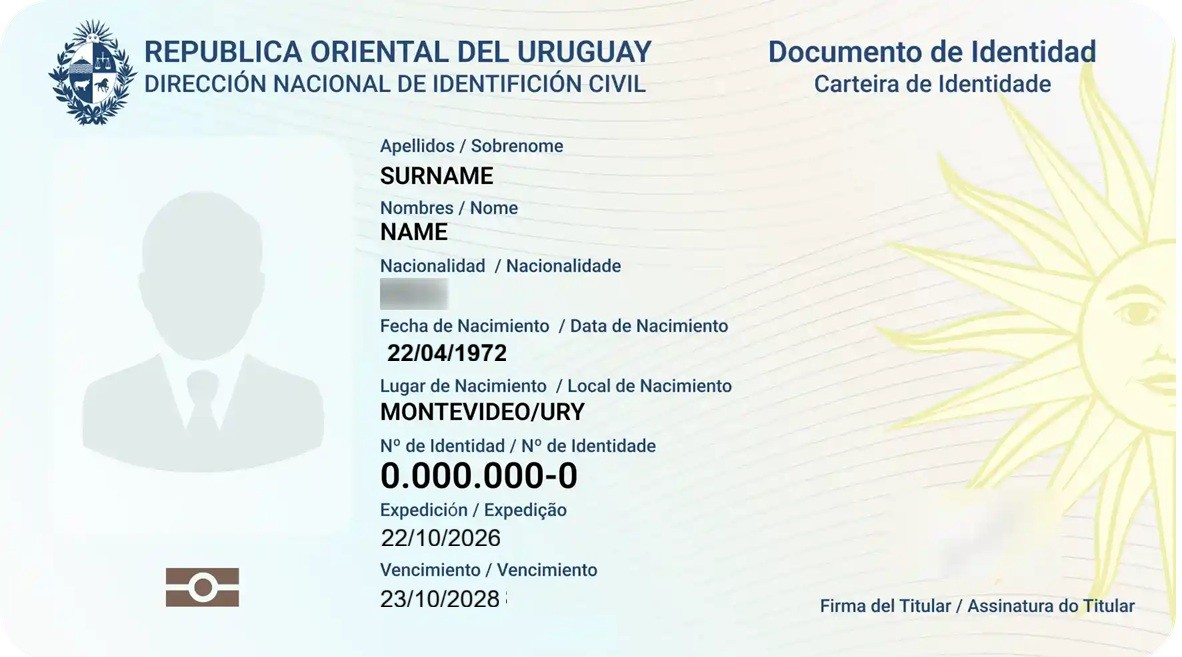Uruguay has a very friendly policy and a straightforward process.
There is no need to invest money in Uruguay to get your residency approved and the
process only takes from 6 to 12 months.
Even more, after 3 or 5 years, depending on your marital status, you can have the
Uruguayan citizenship and second passport.
The required documents to apply for Permanent Residency are:
- Birth Certificate: For those who do not keep their birth certificate, there is a useful
online service to obtain it: www.vitalcheck.com (this service is only available in
the US). - Marriage certificate: Only if you are applying with your wife/ husband. If you were previously married, you only need to present the necessary documentation to prove your last name change, as your last name on the passport with which you initiated the process and your criminal record must match.
- Clean Police record: you need to submit police record from the country you were
born and from the country you have lived in the past years. US citizens may
request the police record in Uruguay (at the local Interpol office), or request it
from the FBI in the US and bring it to Uruguay, duly apostilled. The police record
cannot be more than six months old on the date you file it with Uruguay’s
immigration authority. - Proof of Income: The POI may be proven in a number of ways: a pension,
dividends, rental income, or a work contract with a company in Uruguay, among
others. We review the source of income with you, to ensure that it is acceptable
for immigration purposes. A simple bank statement will not suffice as POI, since
it does not prove a steady stream of income. In addition, you have to prove that
the income is actually received in Uruguay, so it is convenient to open a bank
account in the country, which is easy, and can be done in a day, at some banks.
The Proof of Income document cannot be more than six months old on the date
you file it with Uruguay’s immigration authority. - Medical check-up: A brief and simple medical checkup is required, from one of
several authorized private clinics in Uruguay. This exam is fast, and it is not a
screening test. We will take you to the private clinic to obtain your health card.
Remember that all documents issued overseas need to be apostilled in order to be valid
in Uruguay. An Apostille is a simple stamp, which you obtain locally, at a state office.
If your documents come from a country that is NOT part of the Apostille Treaty (eg
Canada), the documents need to be stamped at the competent Uruguayan consulate
(the consulate in the country where the document was issued). The stamping procedure
is called “legalization” and all consulates are familiar with it.
STEP BY STEP
- Determine the type of residency
- Permanent or temporary residency.
Depends on the country of origin and the length of your planned stay in Uruguay.
2. Gather the necessary documentation
- A valid passport.
- Birth certificate.
- Criminal record certificate from your country of origin and the last countries you lived in.
- Proof of income (retirement, employment contract, self-employment, etc.).
- Uruguayan medical certificate.
- Marriage certificate or proof of relationship, if applicable.
⚠️ All foreign documents must be apostilled or legalized and translated into Spanish by an Uruguayan certified translator.
3. Request an appointment at the National Directorate of Immigration (DNM)
- This is done online.
- All documentation must be submitted on the day of the appointment.
4. Payment of fees and stamps
- At the corresponding offices or through authorized payment networks.
5. Interview and submission of documents
At the appointment at Immigration, the documentation is reviewed and the residency file is opened.
6. Identity Card Processing
- Once the application process has been initiated, you can apply for a Uruguayan Identity Card at the National Directorate of Civil Identification (DNIC).
- Final Resolution
- Once approved, you will obtain legal residency in Uruguay, with the right to live, work, and access the country’s public services.
7. Follow up of the application
- You can check the status online or in person at Immigration.
- In some cases, additional documentation may be requested.
8. Final Resolution
- Once approved, you will obtain legal residency in Uruguay, with the right to live, work, and access the country’s public services.

